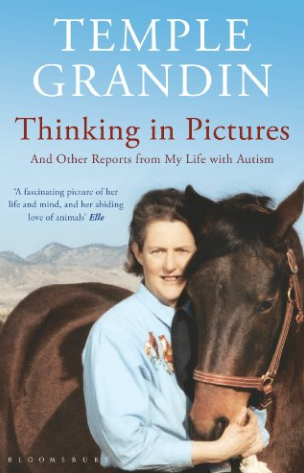



The biosocial field of autism is not entirely structured by such radical polarizations, but it must nonetheless face the question whether mental disorders are necessarily harmful and whether people who have “symptoms” that don’t make them suffer or put them at an increased risk of experiencing future distress or impairment should be considered mentally ill (Cooper 2015). Under DSM-IV, such people were not diagnosed; in DSM-5 they are. The high-functioning end of the autism spectrum is a paradigmatic case, since some people (who would have formerly been diagnosed as having Asperger syndrome) meet the diagnostic criteria but are not unhappy and function well in society. Treatments are acceptable to alleviate discomforts they share with millions of undiagnosed individuals.

Book cover
About the book
The idea that some people think differently, though no less humanly, is explored in this inspiring book. Temple Grandin is a gifted and successful animal scientist, and she is autistic. Here she tells us what it was like to grow up perceiving the world in an entirely concrete and visual way - somewhat akin to how animals think, she believes - and how it feels now. Through her finely observed understanding of the workings of her mind she gives us an invaluable insight into autism and its challenges.
To purchase the book, click below.

Temple Grandin is a scientist and autism spokesperson.
Temple Grandin was the subject of an homonymous 2010 movie. Watch the trailer below:

Inspired by the homonymous book by Fernando Vidal and Francisco Ortega, this timespace presents the authors' genealogy of the cerebral subject and the influence of the neurological discourse in human sciences, mental health and culture.